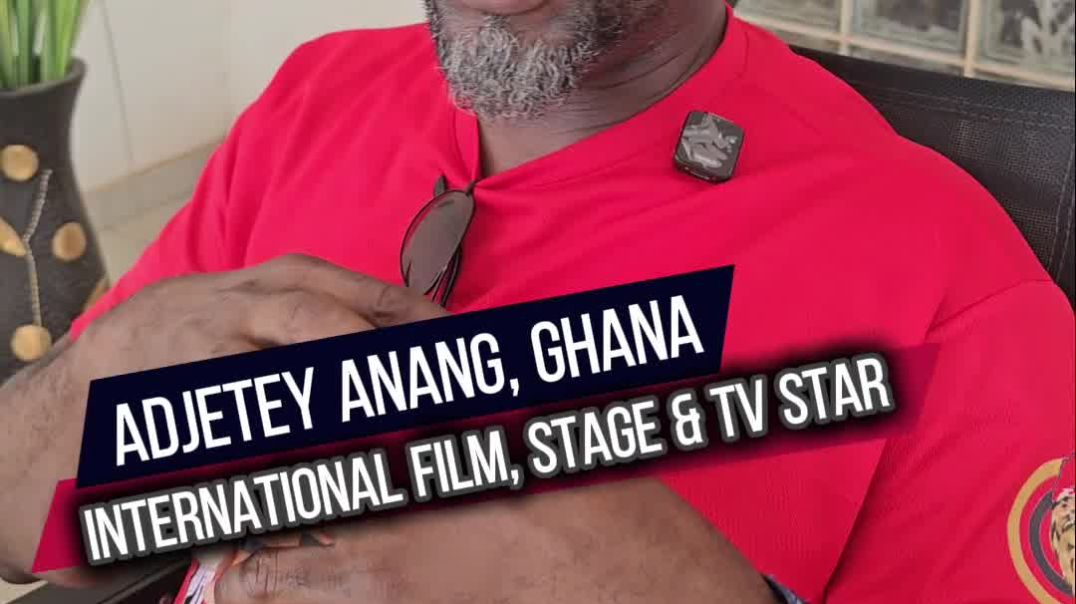Top videos
Adjetey Anang Excited about the AbibitumiAbibifahodiefilmfestival
Keynote address at the Launch of the Kwame Ture Memorial Lecture Series June 9th, Trinidad and Tobago, sponsored by the Emancipation Support Committee.
Dr Jemima Pierre delivered these remarks at the University of the West Indies on the issue of imperialism in Haiti and the Caribbean at large and how the system is maintained by international bodies like CARICOM. She also presents a way forward for the region.
Source: Emancipation Support Committee YouTube Channel @TTESC
Register here: https://www.abibitumi.com/register
Find out more about D.O.O.R. here: https://www.decadeofourrepatriation.com and https://www.door.events
Abibitumi Conference Tickets at https://www.abibitumi.com
Abibifahodie Festival is FREE! Free shuttle info and schedule at https://www.abibitumi.com
Machel Montano x Tempa x Travis World - Tempa Wine
Buy/Stream - https://monkmusic.link/tempawine
Don't forget to SUBSCRIBE: http://bit.ly/1daMZwo
Song Credits:
Song Title - Tempa Wine
Artist - Machel Montano x Tempa
Producer - Travis World
Composers/Writers - Machel Montano, Travis Hosein, Rebecca Alexander, Shane Howell, Emmanuel Rudder, Kernal Roberts, Dwain Antrobus, Patrice Roberts
Machel Montano recorded by - 1st Klase at Baby Monster Studio Trinidad
Tempa recorded by - I.Y.K.Y.K Ent at Studio Impact
Mixed & Mastered by - Travis World
Contains a sample of “Tempa Wine” by Patrice Roberts x Machel Montano
Record label - Monk Music / Travis World Music
Follow the Team:
https://www.instagram.com/machelmontano/
https://www.instagram.com/tempa_music._/
https://www.instagram.com/travisworldmusic/
https://www.instagram.com/emmanuelallanrudder/
https://www.instagram.com/stud....ioimpact_productionz
https://www.instagram.com/iykyk_ent_/
Follow Machel Montano:
X | https://www.x.com/MachelMontano
Instagram | https://www.instagram.com/machelmontano
Facebook | https://www.facebook.com/MachelMontanoMonk
Spotify | http://bit.ly/MM-spotify
Soundcloud | https://soundcloud.com/machelmontano
Follow Monk Music:
Instagram: https://www.instagram.com/monkmusicgroup
Facebook: https://www.facebook.com/monkmusicgroup
X: https://x.com/monkmusicgroup
Hon. Sidia Sana Jatta is a trained Africanist linguist who contributed to early research into West African languages while he was a research fellow at the International African Institute in London (SOAS) between 1980 and 1982. He is the founder of the People’s Democratic Organisation for Independence and Socialism in The Gambia. He has been a vocal proponent of Gambian language use (instead of English) to facilitate communication, information exchange and learning. His knowledge and first-hand experience of Gambian education is vast. He has notably worked as a teacher and as a senior curriculum development officer for the Curriculum Development Centre from (70s-80s). He was also a member of the Gambian National Assembly’s Education Committee for over 10 years.
He Made History With the Black Power Salute Now John Carlos Comes to Ghana!
In 1968, John Carlos and Tommie Smith made history at the Mexico City Olympics when they raised their fists in the iconic Black Power salute. It became a moment that was a powerful symbol of resistance and solidarity in sports history.
Now, decades later, Dr. John Carlos visits Ghana for the first time, reconnecting with the spirit of Africa and the roots of the global Black liberation movement.
In this video, I chat with him about his career, how his protest in Mexico affected him and what advice he has for the next generation.
______________________________
Support the goal of travel to tell more compelling stories from the African continent.
Zelle: info@ivyprosper.com
_______________________________
Join this channel to get access to perks:
https://www.youtube.com/channe....l/UCgZB3nu4P9BaH0jLW
_______________________________
Are you sending money to loved ones in Ghana, Kenya, Uganda, Tanzania, Nigeria, Senegal, and Liberia? You should try Sendwave! Use my code IPROSPER to get a $10.00 credit towards your first transfer. Download at https://try.sendwave.com/kjap/02nnofcp
_____________________________
Want to support the growth of this channel to bring you more guests and more impactful stories from Africa? No donation is too small. Tap here to show your support: https://www.paypal.com/donate/....?hosted_button_id=QC
_____________________________
Whether you're considering moving to Ghana, or simply want to plan a trip. A CONSULTATION with Ivy Prosper about Ghana may be what you need -
Book 30 MINS:
https://calendly.com/ivyprosper/30min
___________________________
PURCHASE BOOK - 'Your Essential Guide on Moving to Ghana' - https://www.amazon.com/Your-Es....sential-Guide-Moving
From my KSM Interview
https://www.abibitumi.com/apps
Amin: The Blood Moon Rebirth
Music Film by NF STUDIOS.
Set against the breathtaking backdrop of Ghana’s sacred waterfalls, Amin: The Blood Moon Rebirth is a powerful fusion of music, ritual, and cinematic storytelling. The film explores themes of renewal, spiritual cleansing, and transformation.
This is both a prayer and a performance ,a testament to the enduring power of nature, culture, and creative expression.
Provided to YouTube by Virgin Music Group
Synchro System (Complete Original Version) · King Sunny Ade
The Best of the Classic Years
℗ 2003 Shanachie
Released on: 2003-02-11
Writer: King Sunny Ade
Auto-generated by YouTube.










